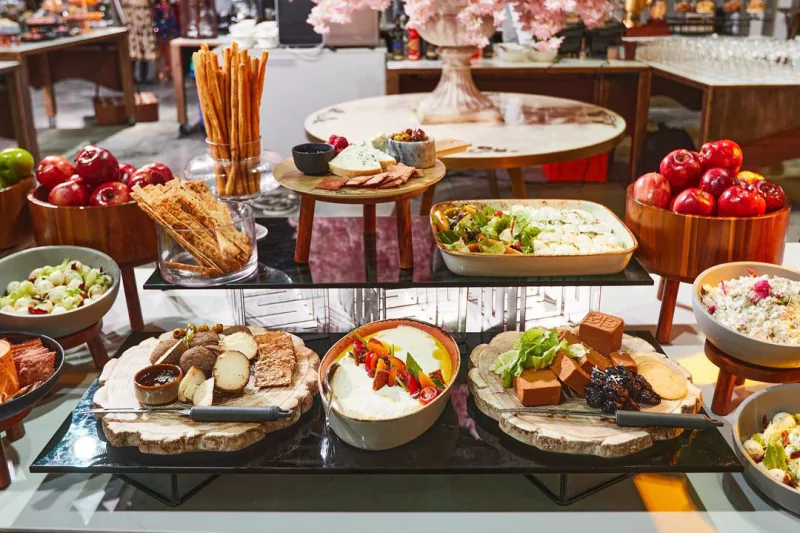In the ever-evolving landscape of dietary preferences and restrictions, event planning has become a more intricate task. Differentiating between vegan and vegetarian or distinguishing carb-free from gluten-free or grain-free can be challenging. When you throw allergies and sensitivities into the mix, the potential pitfalls are numerous. Fortunately, RASPBERRY is here to guide you with four straightforward strategies for addressing dietary restrictions at your upcoming event.
#1 – Early Preparation
When sending out event invitations or registration materials, consider including a dietary preference card. This allows guests to communicate in advance if they or their companions require special dietary considerations. Be sure to account for food allergies such as dairy, nuts, and seeds, as well as any religious dietary restrictions. Utilizing a digital form streamlines the process and consolidates all the information for event organizers.

#2 – Embrace Versatile Cuisines
Variety is indeed the spice of life, particularly when choosing a culinary theme for your event. Certain cuisines, like Asian, Mediterranean, Indian, and Mexican, offer a wide range of dishes. Many of these cuisines lean more towards vegetables and less towards starchy American or pasta-heavy Italian fare.
Consider offering an “international sampler” menu that caters to various dietary preferences, adding a fun and festive twist to your event. Fusion cuisine is another creative approach, blending the best elements of two or more culinary traditions to suit multiple diets.

#3 – Timeless Salad Bar
A salad bar never goes out of style and appeals to guests with or without strict dietary preferences. It allows individuals to create a custom plate tailored to their liking. In addition to traditional greens and toppings, consider introducing unique, seasonal items like fresh ripe berries and artisanal cheeses to elevate the experience. Offering a wide array of dressings and even some soups or stews can further enhance variety.
#4 – Transparency Is Key
The last thing you want at your event is to surprise your guests, especially when it concerns their dietary needs. Transparency is the solution. Clearly label all dishes with their ingredients, including notifications for items prepared using “shared” equipment or facilities. For example, it’s vital to inform a guest with a severe peanut allergy if any items may have come into contact with peanuts, as even the smallest trace can be life-threatening. The more information you provide, the better equipped your guests are to make informed choices.
Food and beverages are integral to many events, but they need not be a source of stress. At RASPBERRY, we bring nearly two decades of experience working with diverse global audiences with a multitude of dietary requirements. We have an equal level of expertise in collaborating with caterers and restaurants to ensure that these needs are met. If you require assistance, don’t hesitate to place an order with us; we’re always delighted to serve you.







